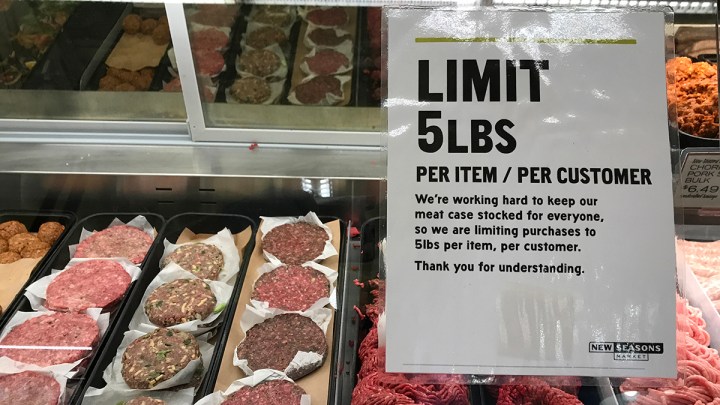
COVID-19 exposes U.S. meat supply’s dependence on a few large plants
COVID-19 exposes U.S. meat supply’s dependence on a few large plants

Wendy’s is out of fresh hamburger at some locations. Costco and Kroger (which is also Ralphs, Food 4 Less, Fred Meyer and many more) are limiting the amount of pork and beef customers can buy. Meat processors including Smithfield, Hormel and Tyson have been forced to shut down plants amid virus outbreaks.
With COVID-19, the role of big meat producers is changing in the supply chain.
We’ve got plenty of cattle and hogs, but there’s a hold-up slaughtering and butchering them with big plants shut down, says University of California, Davis, agricultural economist Dan Sumner.
“We’re processing 20% or 30% less meat than we would have done a year ago,” Sumner said.
Twenty years ago, there were more smaller processors. Industry consolidation has cut the number by more than half. That’s a problem, says Sarah Sorscher at the Center for Science in the Public Interest.
“COVID-19 starts to spread among workers, a very large number of people can be affected very quickly,” Sorscher said. “And shutting down just one or two of the biggest plants can easily take out 10% of the meat supply overnight.”
But Sumner says industry consolidation hasn’t made meat supplies more vulnerable to the virus.
“There’s no particular reason to think that it’s more likely to hit a large plant outside of Sioux Falls than 20 or 30 small plants circled around Sioux Falls,” he said.
He also says stockpiles of frozen meat are above average for this time of year.
There’s a lot happening in the world. Through it all, Marketplace is here for you.
You rely on Marketplace to break down the world’s events and tell you how it affects you in a fact-based, approachable way. We rely on your financial support to keep making that possible.
Your donation today powers the independent journalism that you rely on. For just $5/month, you can help sustain Marketplace so we can keep reporting on the things that matter to you.












